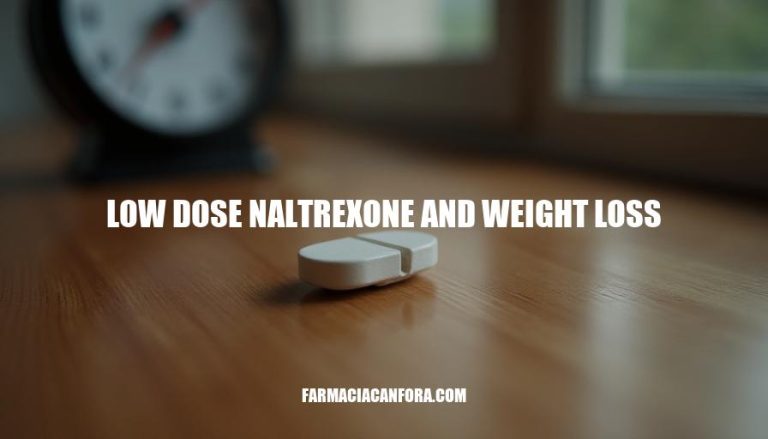


LDN is a medication that’s often used in tiny doses. It’s about 4.5 mg per day, which is much less than what people take for opioid addiction. Researchers are looking into it for things like chronic pain and autoimmune diseases.
Some people think LDN might help with weight loss too.
It works by blocking certain receptors in the body, which can lead to more endorphins and less inflammation. This could make it easier to lose weight and keep it off.
This is a promising area of research because we need better ways to manage our weight. The early studies are small, but they’re showing some interesting results.
Low dose naltrexone (LDN) works in the body by acting as an opioid receptor antagonist at low doses, typically around 4.5 mg per day, which is significantly lower than the doses used for treating opioid addiction. This low dosage allows LDN to modulate the immune system, reduce inflammation, and potentially regulate appetite and metabolism.
LDN promotes the function of T regulatory cells (Tregs), which help maintain immune balance by turning inflammation on and off as needed. By blocking opioid receptors temporarily, LDN triggers the body to produce more natural opioids, which can enhance immune regulation.
Studies have shown that LDN can inhibit the production of inflammatory cytokines like IL-6 and TNFα in immune cells.
LDN exerts its anti-inflammatory effects by blocking Toll-like receptor 4 (TLR4) on microglial cells in the central nervous system. This blockade prevents the activation of these cells, which are responsible for producing inflammation and pain. Clinical trials have demonstrated that LDN can reduce symptom severity in conditions such as fibromyalgia, Crohn’s disease, and multiple sclerosis.
While the exact mechanisms by which LDN affects appetite and metabolism are not fully understood, it is believed that its modulation of opioid receptors and subsequent increase in natural opioid production may play a role.
Additionally, LDN has been shown to reduce cravings and food intake in some studies, contributing to weight loss.
Several studies have explored the effectiveness of LDN in promoting weight loss. One notable study combined LDN with bupropion, an antidepressant that suppresses appetite, and found that this combination was effective in treating obesity in patients. The FDA has approved this combination for chronic weight management in adults with a BMI of at least 30 kg/m² or a BMI of at least 27 kg/m² with weight-related comorbidities.
In summary, LDN works through immune modulation, inflammation reduction, and potential appetite regulation to promote weight loss.
While more research is needed to fully understand its mechanisms and effectiveness, current evidence supports its use as a promising treatment for obesity and related conditions.
LDN may help with weight loss by modulating the immune system, reducing inflammation, and regulating appetite and metabolism.
Studies have shown that LDN can inhibit inflammatory cytokines, reduce symptom severity in conditions like fibromyalgia and multiple sclerosis, and decrease cravings and food intake.
However, more research is needed to fully understand its mechanisms and effectiveness for weight loss. Consult with a healthcare professional before considering LDN as a weight loss solution, as personalized medical advice is crucial.